Research Fellows Winter Term 2025-2026
Oleksandr Pryimenko
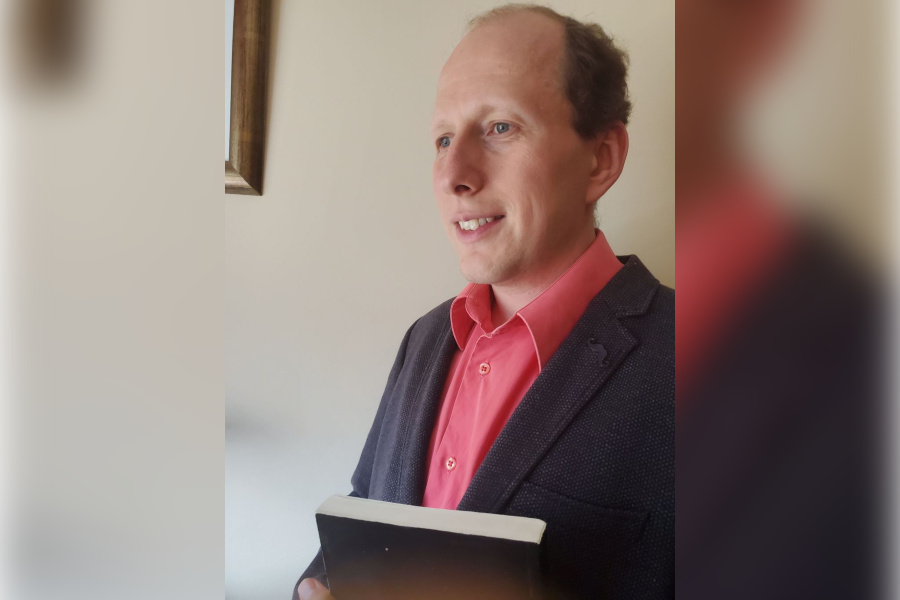
KIU
Oleksandr Pryimenko
Oleksandr Pryimenko, PhD in Law, Associate Professor, specializes in social security law of Ukraine and practice of the European Court of Human Rights. He earned his Ph.D. in 2014 at Taras Shevchenko National University of Kyiv. He was a postdoctoral researcher at the University of Alicante and Miguel Hernández University of Elche, where he focused on the Spanish experience with survivors' pensions. Specifically, he examined provisions for common-law partners and victims of gender-based violence to guide Ukrainian legal reform. He has also engaged in international cooperation through various projects, notably the Erasmus+ program, addressing the Ukrainian higher education system.
KIU Research project: ´Harmonizing Ukrainian Survivor Pension with the European Court of Human Rights Jurisprudence in Post-War Reconstruction Period´. The main focus of the project will be on common-law partners of different and same sex. The current system, designed for legally married spouses, inadequately protects common-law partners. In Ukraine the legal framework surrounding common-law partnerships is less developed and more fragmented than in Europe. It indicates an urgent need for comprehensive legal reform. The existing well-developed practice of the European Court of Human Rights on these issues should become the basis for a new legal regulation of survivor pension in Ukraine.
Research interests:
- Social security law
- European protection of social rights
- Comparative pension law
Yaroslava Gnezdilova
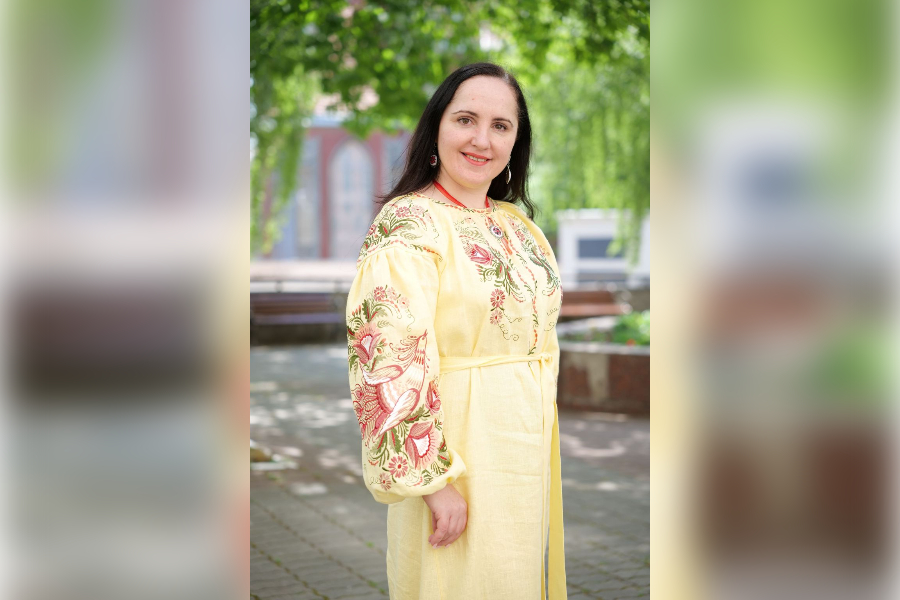
KIU
Yaroslava Gnezdilova
Yaroslava Gnezdilova is Doctor of Philological Sciences, Professor, Dean of the Faculty of Germanic Philology and Translation at Kyiv National Linguistic University, Ukraine. She is the member of Expert Council of the Ministry of Education and Science of Ukraine on the certification of scientific personnel in philological sciences and social communications. In 2024 Yaroslava Gnezdilova was awarded for her significant contribution to the development of education and science in Ukraine. She authored more than 70 scientific publications and two doctoral theses (CSc, 2007, and DSc, 2021) on detecting emotions in speech, discourse studies, manipulation, rhetoric and persuasion.
KIU research project: Emotions that rule: A case study of the Russian-Ukrainian War and emotional manipulations in politics
This interdisciplinary research combines political studies, psychological analysis, and linguistics to explore emotional manipulation in media discourse, focusing on the Russian-Ukrainian war since January 24, 2022. It investigates how emotions —strategically evoked in political communication — shape public opinion globally and within Ukraine. The study examines shifts in attitudes toward the conflict and Ukrainians, analyzing whether these changes stem from natural war dynamics or deliberate political influence. A key focus is on media texts and their translations, revealing how ideology and cultural context affect interpretation. Reporting verbs are analyzed as cues of emotional framing, comparing British, American, Ukrainian, and Russian media narratives.
Research interests:
- public communication and manipulation
- emotions in speech
- political and media discourse studies
Liana Moskalyk
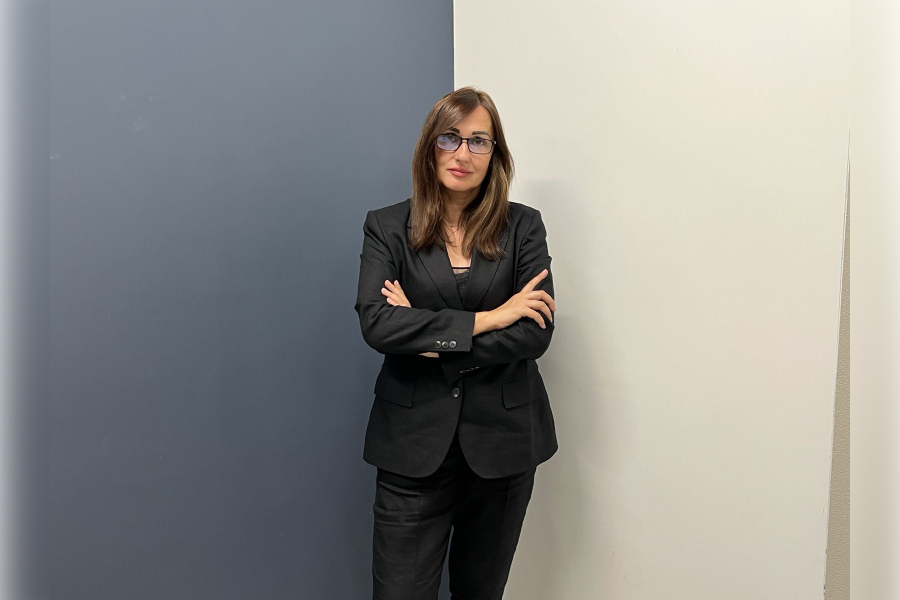
KIU
Liana Moskalyk
Liana Moskalyk PhD in Economics, Associate Professor of the Department of International Economic Analysis and Finance at the Faculty of International Relations, Ivan Franko National University of Lviv. She is certified specialist in Trade Policy and Commercial Diplomacy, Center for Trade Policy and Law of Carleton University, University of Ottawa and co-author of the book “Commercial Diplomacy, Trade Policy and Law” (1st and 2nd editions). As visiting scholar at Uppsala University and Evora University, she is actively engaged in national and international research projects. Her current research investigates financial inclusion as a strategic pillar for Ukraine's post-war economic recovery and sustainable growth. Author of publications in leading Ukrainian and international scientific editions.
KIU Research Project: Addressing infrastructural fragmentation through financial inclusion policy: Techno-political approaches for Ukraine's economic recovery and european integration in times of crisis.
The research investigates how techno-political strategies - combining digital financial solutions and adaptive policy frameworks - can mitigate Ukraine's war-induced infrastructural fragmentation. Focusing on financial inclusion in conflict-affected regions, the study aims to identify approaches for immediate economic recovery and long-term alignment with EU financial integration. It addresses theoretical gaps by synergizing technology and policy in active conflict zones and offers urgent policy insights given damaged infrastructure and EU accession requirements. The project provides practical recommendations for Ukraine's economic recovery and digital finance integration.
Research interests:
- Digital Finance and FinTech
- Post-Conflict economic recovery and reconstruction
- International economic and finance
Nataliia Mushyrovska
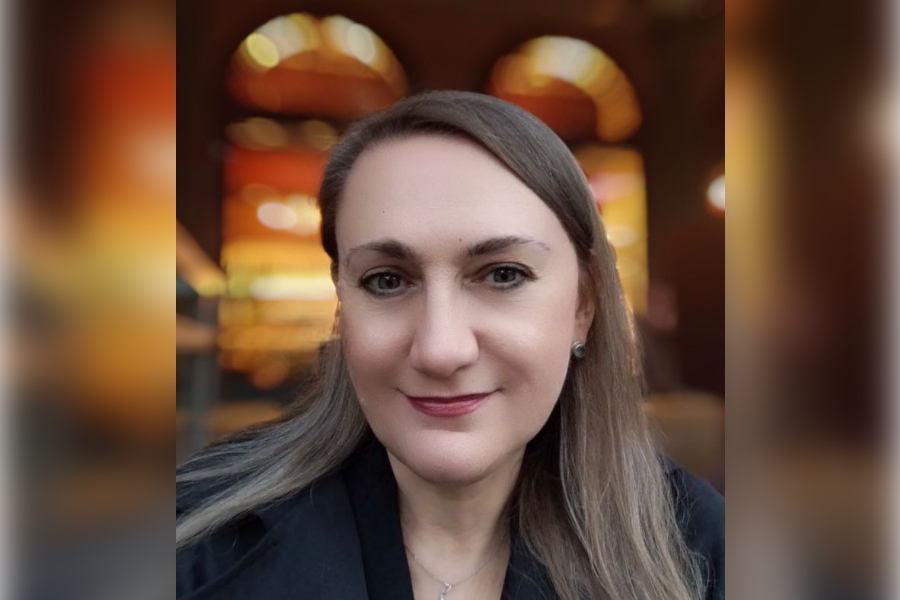
KIU
Nataliia Mushyrovska
Nataliia Mushyrovska studied Philology at Rivne State University for the Humanities and received her Ph.D. in Ukrainian Literature from Taras Shevchenko National University of Kyiv. She is Associate Professor at Rivne State University for the Humanities and at the Open International University of Human Development “Ukraine.” She has extensive teaching experience in linguistic disciplines. Her international experience includes research stays at the University of Vienna (Austria), the University of Granada and the University of Málaga (Spain), the University of Bologna (Italy), and Ghent University (Belgium), as well as presentations at numerous international conferences, including Università degli Studi di Milano and Università degli Studi di Napoli “L’Orientale” (Italy).
In Ukraine, she promoted Ukrainian language and literature, served on the juries of the Petro Jacyk International Ukrainian Language Competition and the Junior Academy of Sciences of Ukraine, lectured at the Rivne Regional Center for Retraining, and is a member of the Taras Shevchenko Scientific Society. She was awarded distinctions from the Regional Department of Education and the Ukrainian Ministry of Education. Her research interests focus on discursive and cognitive strategies, linguistic mechanisms of identity construction, and national-cultural representation in texts.
KIU research project: Discursive Resilience in Wartime Ukraine: Linguistic Strategies of Responding to Infrastructural Crisis
The war in Ukraine has caused not only the material destruction of infrastructure, including housing, energy, water supply, and logistics, but also the intensification of civic, media, and cultural discourse aimed at maintaining social stability. By analyzing the linguistic construction of crisis and recovery across political, institutional, media, and grassroots discourse, the project offers an empirically grounded and theoretically innovative account of how language functions as symbolic infrastructure during systemic disruption. The Ukrainian experience provides a unique example of how language serves as a key instrument of collective resilience. Public discourse during such crises demonstrates rhetorical elasticity – combining urgency with irony, grief with defiance, and critique with pragmatic optimism. Whether through memes or official communications blending administrative clarity with cultural reference points, linguistic practices support psychological stabilization and collective agency. In this context, the project focuses on understanding discursive resilience — the ability of society to recover and adapt through language.
Research interests:
- Language as a symbolic system and semiotic resource
- Linguistic mechanisms of identity construction
- Discursive and cognitive strategies in communication
- Political, media, and civic discourse in times of crisis
Francesc Rodríguez
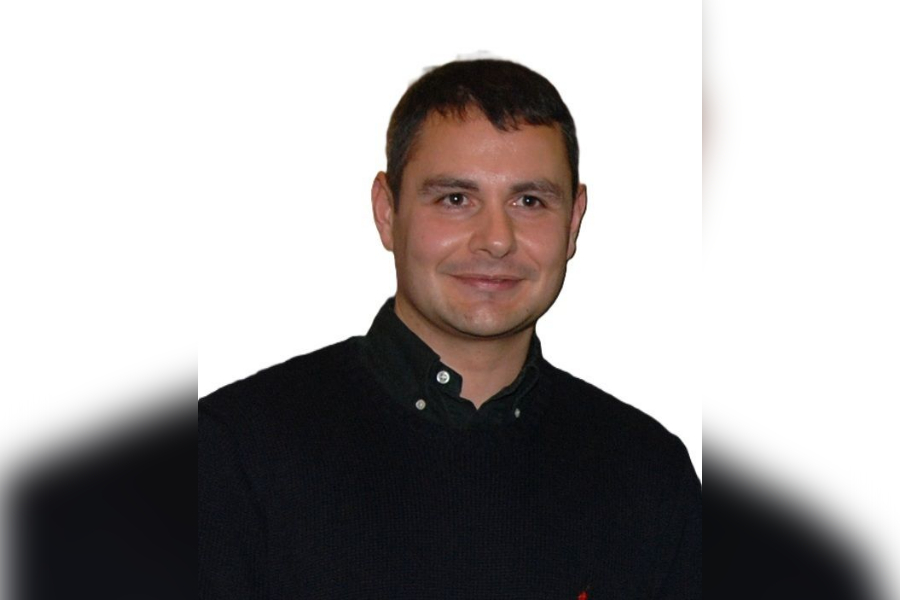
KIU
Francesc Rodríguez
Francesc Rodríguez, Ph.D. in Science and Technology Studies (York University), is assistant professor in environmental humanities and STS in the Chair of Technoscience Studies at Brandenburg University of Technology Cottbus–Senftenberg (BTU). While there, he has also worked within EUNICE, the European University for Customised Education, to develop and coordinate a new european joint M.A. programme in Technoscience, Environment and Society, connecting six universities in Germany, Ukraine, Greece, Portugal, France, and Sweden. In addition, Francesc collaborates with NUBiP in Kyiv, where he regularly gives lectures for the Faculty of Plant Protection, Biotechnology and Ecology. Previously, Francesc held research and teaching positions at Rhine-Waal University of Applied Sciences and Open University of Catalonia.
KIU research project: Lived waterscapes in Ukraine: hydrosocial relations, infrastructures, and more-than-human beings
Using a variety of ethnographic and community-based approaches, my research addresses the aftermath of hydraulic warfare in several rivers and other bodies of water across Ukraine. In the context of water and river transformations, it offers thick descriptions and analyses of the continuities and discontinuities that unfold at different scales across hydrosocial relations, infrastructures, and more-than-human beings. Although I have worked in various riverine areas across the country over the past two years, this KIU research project centers on a case study in the Irpin Valley, which has remained flooded since 2022. Ultimately, my research highlights the need to broaden and contextualize current debates on war-related environmental restoration efforts, considering the particularities that make and unmake transformed waterscape areas in Ukraine.
Research interests:
- water & multispecies ethnographies
- socio-environmental conflicts
- science & society relations
- infrastructure studies
Konrad Sobanski
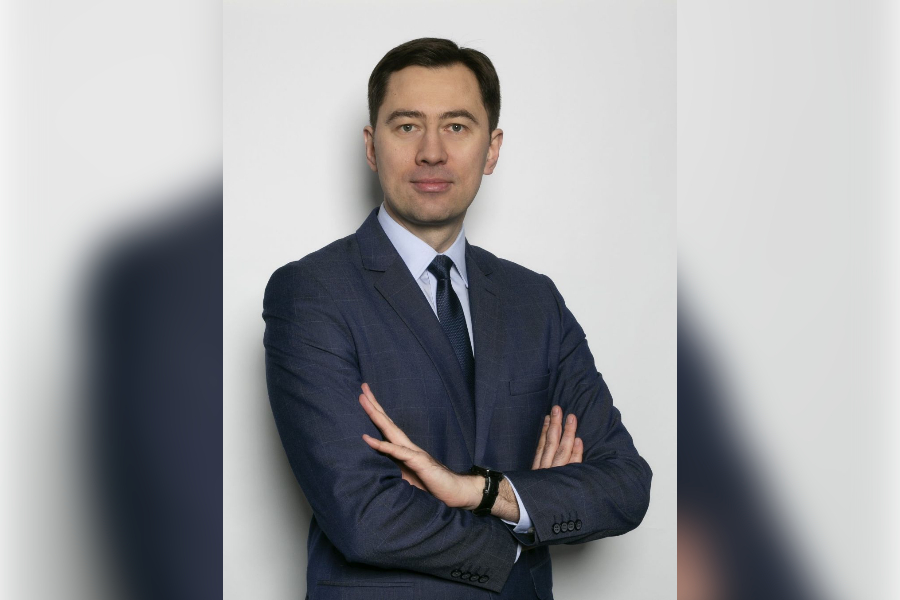
KIU
Konrad Sobanski
Konrad Sobanski is an Associate Professor at the Poznan University of Economics and Business (PUEB), Poland. His research focuses on international finance, financial markets, digital economics, blockchain finance, and fintech, with a particular interest in Central and Eastern Europe. He has published in numerous international journals and authored award-winning monographs recognised by the Polish Economic Society, the Leopold Kronenberg Foundation, and the Polish Ministry of Science and Higher Education. He has served as a Visiting Professor at universities in Azerbaijan, Canada, Croatia, Czech Republic, Germany, Kazakhstan, Spain, and the United Kingdom. He is a member of the Editorial Board of Economics and Business Review. He lectures in the Executive MBA programme jointly run by PUEB and Georgia State University in Atlanta, United States. Konrad is a Fellow of the Association of Chartered Certified Accountants, United Kingdom, and holds licences as Investment Adviser and Securities Broker.
KIU research project: ‘Crisis-Innovation-Transformation: Digital Financial Infrastructures in Wartime and Postwar Ukraine’
This project investigates how Ukraine is redefining the foundations of its financial system in response to the infrastructural collapse triggered by Russia’s full-scale invasion. Amid destroyed bank branches, cash shortages, institutional dislocation, and limited access to international finance, Ukraine has built a multi-layered digital financial architecture - spanning government platforms, stablecoins, and blockchain-based tools - that ensures continuity of core monetary and fiscal functions. The research examines both the short-term function of these instruments during wartime disruption and their potential long-term transformation of Ukraine’s financial infrastructure. The project contributes to debates on how financial systems adapt in fragile and conflict-affected environments through digital innovation.
Research interests:
- international finance
- financial markets
- digital economics
Waldemar Rapior
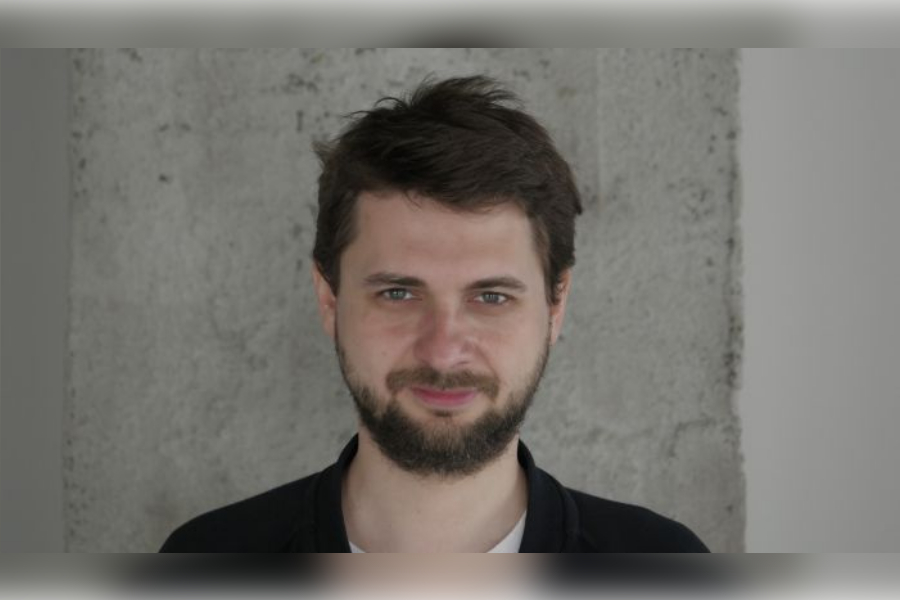
KIU
Waldemar Rapior
Waldemar Rapior holds MAs in Sociology and Cultural Studies, as well as a PhD in Sociology. He studies moral practices in times of crisis and the principles guiding social action during periods of tension and moral ambiguity. His work lies at the intersection of art and science collaboration and public sociology, with a focus on evolving European responses to people on the move, refugees, and people affected by violence, particularly in Central and Eastern Europe. He was a postdoctoral researcher at the University of Warsaw (2023–2025), where he studied transnational activism and non-state forms of support for Ukraine, including the transfer of dual-use equipment and expressions of solidarity between two countries with a difficult past. He served as principal investigator on his original project, Tacit Morality: Elements of Moral Background Deeply Embedded in Everyday Experience, funded by the National Science Centre. He collaborates with Researchers at the Border, an interdisciplinary collective examining the humanitarian crisis at the Polish-Belarusian border.
KIU research project: Transnational Resilience Infrastructures: Solidarity in Times of National Egocentrism and War
This project examines grassroots interactions between Polish and Ukrainian activists and volunteers beyond the nation-state framework. Drawing on longitudinal qualitative research as well as relational and figuration theories, it investigates how transnational activism fosters resilient social infrastructures. In late 2025, I will conduct in-depth follow-up interviews with volunteers first interviewed in 2023–2024 to trace the evolving dynamics of transnational solidarity amid shifting socio-geopolitical conditions and transformations in European inter-nationalism. The study highlights how activist networks adapt to multiple crises and proposes models of cross-border cooperation essential for sustaining social cohesion in a divided Europe.
Research interests:
● transnational activism
● oral dimensions of war and socio-political crises
● the commons
● nationalism